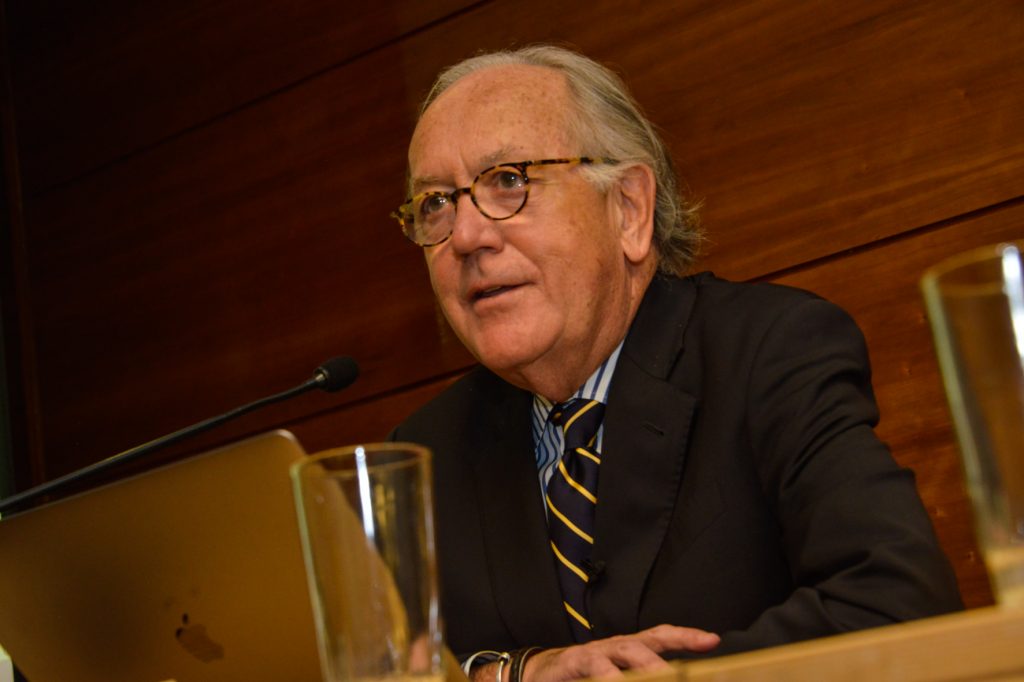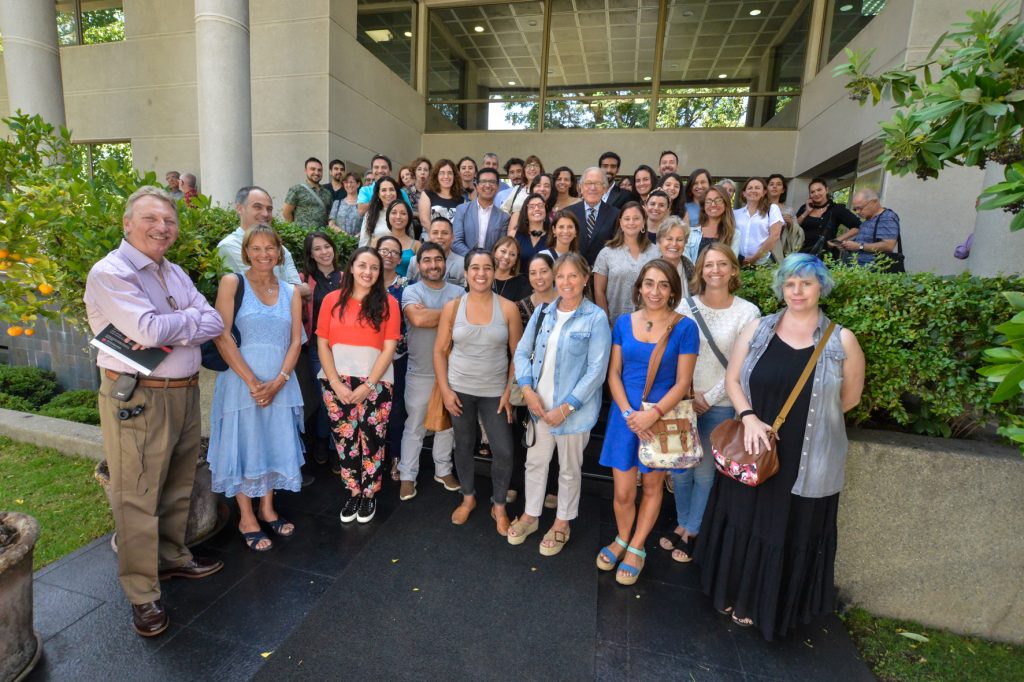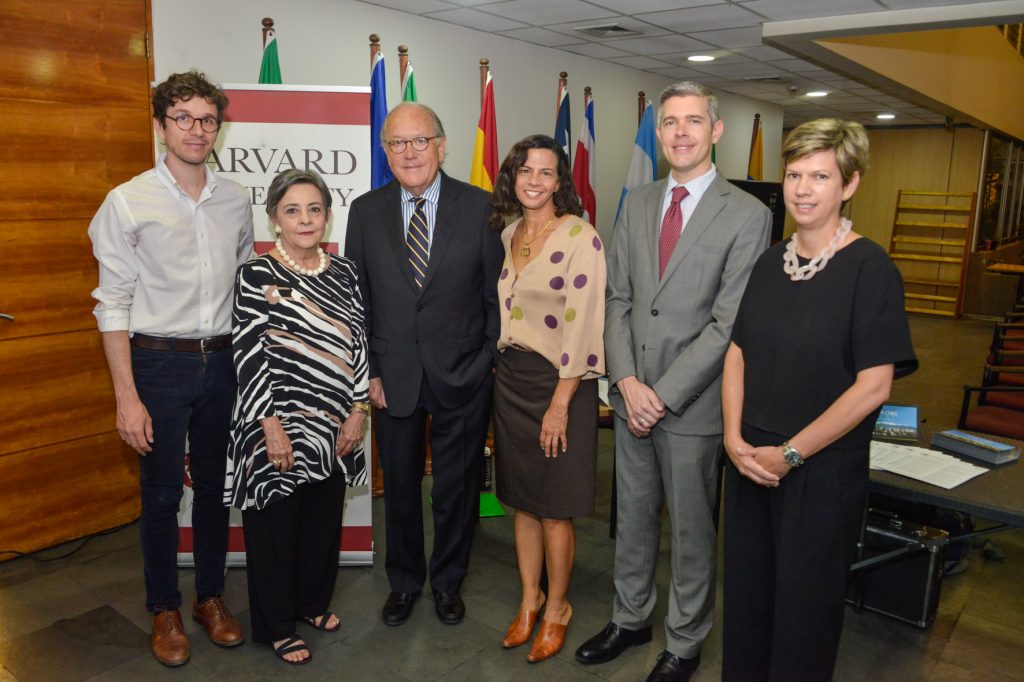
A critical analysis of education was carried out by Richard Elmore, leader of ecosiSTEAM in Chile, at the international seminar “Transforming learning through creativity, science, technology and innovation” to a large attendance of teachers and school directors .
Elmore pointed out that schools are not designed for learning and fulfill a cultural role as an institution in society, establishing rules and standards of practices focused on evaluating the memorization of facts and the fluency of certain procedures, over the development of reflection, Critical thinking and creativity.
In his opinion, human beings are designed to learn, however the science of learning has deviated from the field of education. Also, neuroscience has discovered incredible images of the brain. “The most wonderful thing is that the brain is able to systematically reorganize itself and through experience in controlled environments we can handle the process of pruning and arborization for particular purposes. We must cultivate spaces to learn according to our options and applying the ability to make modifications consciously, in the presence of information, experience and reflection. ” Elmore says that the wrong teaching methodology is not a criticism of the educator but of the system, and at the same time he summoned the key actors in education to design systems and learning modalities that take advantage of each potential, facilitating guided practice in an environment with high participation and not the transfer of information from one human being to another.
“We have created a system in which assistance is mandatory and includes more than 16,000 hours of a child’s life. We have established mandatory custody that involves enormous control in very unstable stages of development of the life cycle. We place children in an environment with control rules and this impacts the psychology of education and public policies, forming systemic children” Elmore said.

Sebastián Marambio, coordinator of the Innovation Center at the Ministry of Education, stressed the importance of promoting educational innovation in Chile, knowing that technology is one of the key elements to transform education. “Having spaces to generate learning tailored to what each student needs and moving away from the standardized is the purpose. Today we have the capacity thanks to the technology of making it increasingly more personalized and scaling good ideas like those of NuVu and High Tech High schools, ”he added.
During the seminar, Ana María Raad, director of ecosiSTEAM in Chile, highlighted the importance of innovating from the grassroots in the approach of education in our country, pointing out that ecosiSTEAM constitutes a simple but ambitious model, which seeks to transform learning for development of skills needed today and tomorrow. “We hope to put powerful ideas at the service of classroom decisions and scientific and artistic projects. While we incorporate methodologies such as the NuVU school, we also hope to add national experiences. We believe in the capacities of ecosystems beyond the connection of actors, but a common goal that mobilizes us all ”.
On the occasion, Marcela Rentería, executive director at the Regional Office of the David Rockefeller Center for Latin American Studies at Harvard University, emphasized the commitment to build links between Latin America and Harvard through bridges of knowledge , with the active commitment of Harvard teachers and students, always in search of a diverse, innovative and inclusive learning. “Our interest goes beyond sharing ideas. We seek to transform education with concrete steps in Chile, based on innovation and the integration of various groups ”.
Eric Catalfano, Counselor for Public Affairs at the United States Embassy in Chile, added: “The work of improving education at STEAM has been a priority. We know that STEAM sciences offer better jobs and better pay. If we want to anticipate the next change, it is essential to encourage a taste for science and mathematics, promoting critical thinking and problem solving. We hope to expand access to education and scientific culture. STEAM education is not the future but the present, and collaborative work is the cornerstone. ”
ecosiSTEAM is a project that arises within the framework of the strategic recommendations that the Chile-United States Council for science, technology and innovation made to the Chilean government during 2018-2019. This initiative is part of the commitment to effective collaboration with the Ministry of Science Technology, Knowledge and Innovation, and includes the main conclusions of the “STEAM Education Coalition” promoted by CORFO and Fundación Chile.

